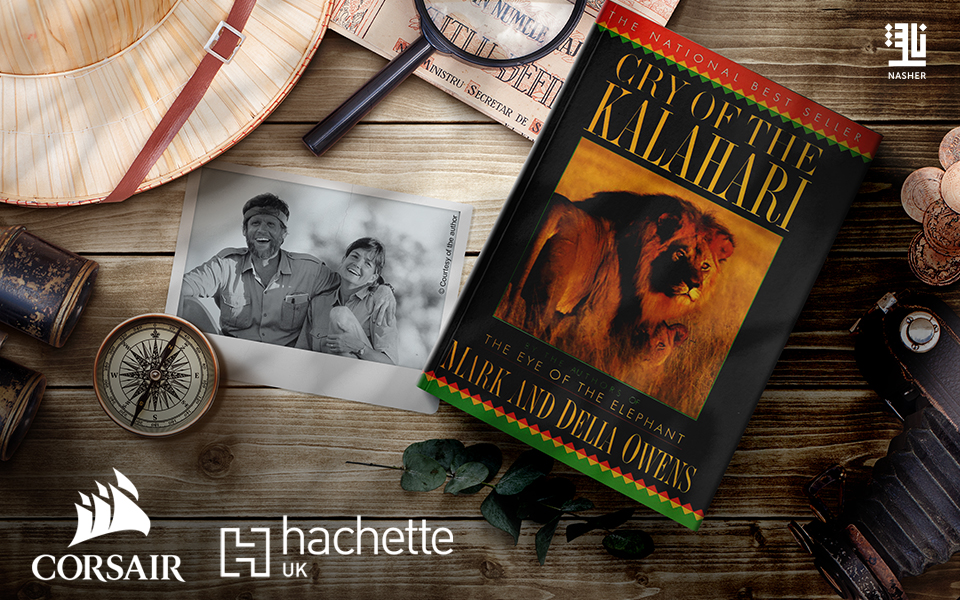A whole other side to the life of Where the Crawdads Sing author Delia Owens is set to be revealed when Hachette UK imprint Corsair – part of Little, Brown – reissues a memoir she wrote with her husband Mark detailing their time as wildlife researchers living in the African bush nearly 40 years ago. Entitled Cry of the Kalahari the memoir carries all the romance of stories like Karen Blixen’s Out of Africa.
The publisher says: “Carrying little more than a change of clothes and a pair of binoculars, two young Americans, Mark and Delia Owens, caught a plane to Africa, bought a third-hand Land Rover, and drove deep into the Kalahari Desert. There they lived for seven years, in an unexplored area with no roads, no people, and no source of water for thousands of square miles. In this vast wilderness [the couple] began their zoology research, working alongside animals that had never before been exposed to humans.
“An international bestseller on original release, Cry of the Kalahari is the story of [their] life with lions, brown hyenas, jackals, giraffes, and the many other creatures they came to know. It is also a gripping account of how they survived the dangers of living in one of the last and largest pristine areas on Earth.”
The couple developed a research station and Mark learned to fly a light aircraft. “We land in the grass,” he recalled, describing their typical day, “most likely in a place never visited by modern man, and sleep in the open under the wing. Now and then we wake to watch the gentle sweep of the Southern Cross through the sky. Knowing that no one on Earth knows where we are, or could ever find us, we feel special, as if we are the only two people in the universe.”
Corsair publisher James Gurbutt bought UK and Commonwealth rights from Lucy Morris at Curtis Brown and the book will be published in October. The publisher notes that the book will include full colour photographs from the authors’ archives, never before published in a book. But what Corsair makes no mention of is the events that would later lead Owens and her husband having to leave Zambia following the death of a poacher and the subsequent broadcast of a controversial documentary about their work. It is a complicated story recounted in detail in a 2010 New Yorker article by Jeffrey Goldberg.
In essence, it seems that Mark Owens may have become obsessed with the welfare of the animals – caring more for them than he did for people, was how one witness put it – with some describing him as a haunted figure, like Mr Kurtz from Heart of Darkness. It is alleged that his son Christopher (Delia’s stepson) may have been involved with the shooting of the poacher. The details are hazy and took place at a time when some African countries did have a shoot-to-kill policy with regard to poachers. There is no suggestion that Delia was involved, but it has made her wary and suspicious of the media. She reacted angrily when Goldberg turned up at her house in Idaho.
Questions remain about the incident and some point to echoes of the story in her hugely successful novel. With the publicity that this new book will bring, plus of course, the release of Reese Witherspoon’s film of Crawdads, it seems that this other side of Delia Owens’ life will come to public attention once again.







